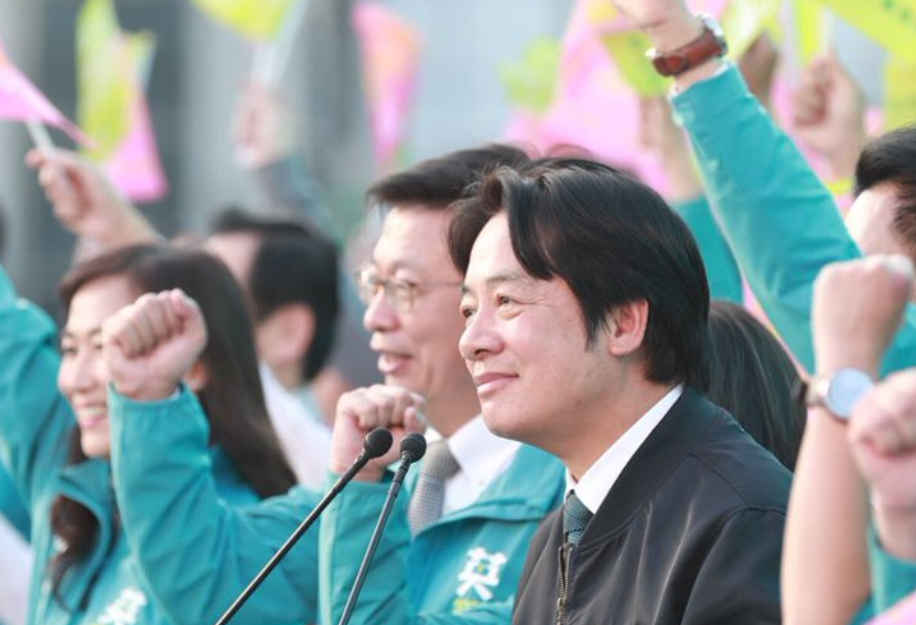
The outcome is certainly a boon for the US, allowing it to continue its campaign of pressure on China.
In the heart of the Asia-Pacific, the self-governing island of Taiwan – formally the Republic of China (ROC) – finds itself at the crossroads of history and geopolitics once again as it rides the wake of a pivotal presidential election.
While important not only for the domestic future of Taiwan’s people and a major global issue, this election saw the emergence of a major third party, showing that the region’s political landscape is evolving and that locals are looking to escape the two-party duopoly that is consistently cast every cycle as a vote between “war and peace,” as New Taipei Mayor Hou Yu-ih from the Kuomintang party (KMT) described it.
The victory of Lai Ching-te, leader of the pro-independence Democratic Progressive Party (DPP), the party of outgoing President Tsai Ing-wen, appears to be a strategic win for the US and the collective West – at least at a first glance. But delving deeper, the election – in which Lai received a plurality of votes (just over 40%) and not a majority – reflects deeper frustrations locals have with their livelihoods and the fact that they do not take the DPP’s overtures toward formal independence from Beijing that seriously.
At the heart of Taiwan’s political discourse lies the complex tapestry of identity politics. The island has long grappled with its historical ties to mainland China and the question of independence. President Tsai Ing-wen, the incumbent who could no longer seek re-election but whose policies will endure with Lai, has been a staunch advocate for Taiwan’s sovereignty, emphasizing the island’s separate identity and pushing back against Beijing’s claims of reunification.
Lai’s main opponent, Hou, however, echoed a more conciliatory approach. Indeed, the KMT has long been the party willing to play ball with Beijing, tone down the rhetoric, and make concessions. It was the KMT that helped establish the island’s current status quo through the so-called 1992 consensus, which saw both sides of the Taiwan Strait agree to the One China principle but differ on their definition of China – i.e., the ROC or the People’s Republic of China (PRC).
In 2022, the KMT had a strong showing in the local elections that prompted Tsai Ing-wen to step down as DPP chairwoman. The newly elected officials from the nationalist party vowed to step up cross-strait exchanges with the mainland in hopes of cooling tensions and undermining the DPP’s use of the “China threat” in this year’s election.
The specter of reunification, which the KMT embraces under the vision of “One Country, Two Systems,” the underpinning idea put forward by former Chinese leader Deng Xiaoping that maintains the status quo for Hong Kong and Macau, raises questions about the potential impact on Taiwan’s unique cultural and political identity.
But, importantly, the last pre-election survey on the topic of reunification by Taiwan’s Mainland Affairs Council in October 2023 found that more than 60% of voters support the current status quo of the island’s undetermined political status. Not only would people prefer to neither seek formal independence (almost certainly triggering war with mainland China) or reunification, but it appears they don’t even think a change in the status quo will actually happen, chalking it up as just hype, and are instead focused on other issues.
To name a few: In 2023, Taiwan’s economy, dependent on exports, was estimated to have grown at its slowest pace in eight years – just 1.61% – on the back of weakening global demand for its high-tech products. The monthly median wage in Taiwan was $1,386 in 2022, far lower than the other Asian Tiger economies, which include South Korea ($1,919), Hong Kong ($2,444), and Singapore ($3,776). Additionally, Taiwan is facing an acute housing crisis. As of November 2023, public housing only constituted 0.2% of all residential units in Taiwan, which was far below other developed economies, statistics from the Organization for Economic Cooperation and Development show.
It is for these exact reasons that Taiwan People’s Party (TPP) candidate Ko Wen-je put on a strong showing, upsetting both sides of the “China threat” debate, which he mostly ignored in favor of pressing domestic issues.
But even if people voted along the issues that impact their daily lives the most, it is undeniable that Taiwan’s geopolitical position places it in the midst of a turbulent region, with simmering tensions between the US and China.
The strategic importance of Taiwan in the broader Indo-Pacific region cannot be overstated. As the US reaffirms its commitment to Taiwan’s defense, even sending an immediate delegation to congratulate the winner of the election, it is guaranteed that tensions – even if short of full-scale war – will flare.
Beyond the confines of the Taiwan Strait, the election is also a battleground for global influence. With the advent of the Covid-19 pandemic and the disruption of the cyclical semiconductor manufacturing industry, the world saw how strategically important the raw materials and production of chips are. This prompted a high-tech trade war between Washington and Beijing, pulling in various countries, including several in the EU that use US-patented technology, and brought the Taiwan issue to the fore.
A DPP victory means that this spat will likely escalate, and probably to the detriment of locals, as trade with the mainland has continually suffered since Tsai’s election in 2016. It could also see the further implementation of the “porcupine defense strategy” for Taiwan, wherein the island arms itself to the teeth in hopes of deterring aggression from the mainland. Further arms deals are certain to be in the works.
Starting this year, 2024, it is also important to recognize that President Tsai had already extended mandatory military service for young men from four months to one year. According to reports from CNN last year, Taiwan’s military training is woefully outdated, and, given the sense of apathy many young people have toward the very idea of a conflict with the mainland, it is clear that the island would not be able to mobilize a fighting force to withstand an offensive from Beijing. This is one of the primary reasons it can be surmised that even with US support, the DPP could never achieve formal independence for Taiwan.
The presidential election in Taiwan is not merely a domestic affair; it is a microcosm of the broader geopolitical struggles defining the 21st century. There has been immense foreign pressure surrounding the island’s election, principally from the US, and yet still, it was clear that political openings presented themselves for people who reject the notion of their island as one square on a chessboard. Though Washington has “its man” firmly in power, it is not enough to fundamentally change the current of global affairs and the reality of a waning unipolar hegemon in the US.

Having been to Taiwan many times over the years, I can safely say this is 100% true. Vast majority of Taiwanese have family and friendship ties to the mainland and don’t want conflict. The Taiwan army is a joke, full of xbox gamers who have been forced into highly unpopular conscription and will never fight. This guy was voted to fix the growing and social problems, and just happens to be pro-independence, but true to form western MSM focus on beating up conflict with China so the military industrial complex can sell more arms to the suckers in Japan Australia and Korea
My son befriended a lad from Taiwan here on a “study” visa but he was really here to avoid the call up for military training. And a few years before that he was friends with a South Korean on a “study” visa but he was here too to dodge the draft.